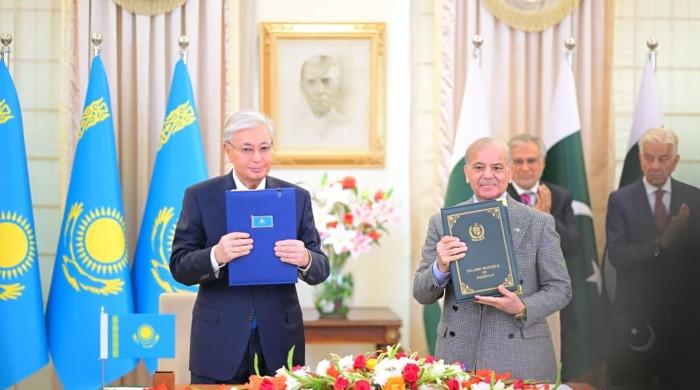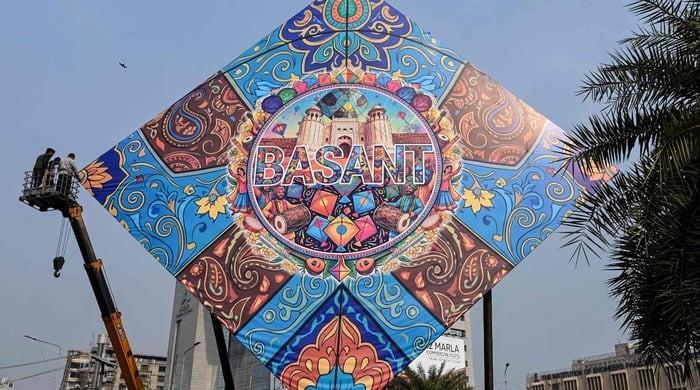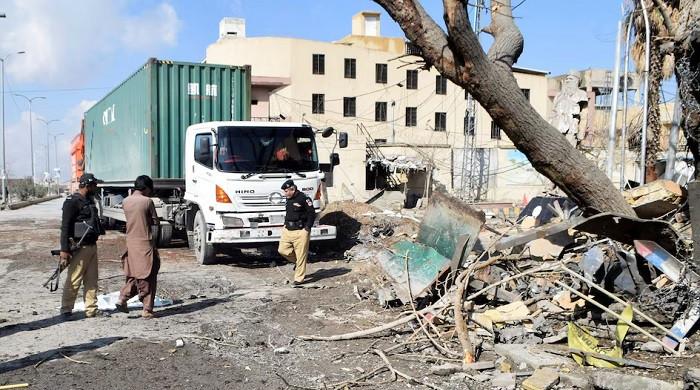Digital technologies can add Rs9.7tr to Pakistan’s annual economic value by 2030: report
Pakistan is home to over 300,000 IT professionals, produces over 25,000 IT graduates annually, and has over 700 tech startups
November 24, 2021

- Report claims Pakistan has the potential to go further in its digital transformation journey despite many achievements is has made already.
- Identifies major pillars of action and technologies Pakistan could pursue to reach the projected growth opportunity.
- President Arif Alvi says he is amazed by the report's finding about the potential of digital transformation in adding to country's economic value.
Digital transformation can help Pakistan unlock up to Rs.9.7 trillion (59.7 billion USD) in annual economic value by 2030, equivalent to about 19% of the country’s GDP in 2020, a new report commissioned by Google states.
The report, “Unlocking Pakistan’s Digital Potential” — prepared by economists at AlphaBeta — finds that Pakistan has a thriving technology sector.
As per the report, Pakistan is home to over 300,000 IT professionals, produces over 25,000 IT graduates annually, and has nurtured over 700 tech start-ups since 2010.
"Technology exports have grown 15% per year since 2020 and are expected to reach $3.5bn (Rs610,750,000,000) in 2022. Pakistan’s online population has grown rapidly and the internet penetration rate is reaching 54% in 2021,” it states.
The report claims that despite the above-stated achievements, Pakistan has the potential to go further in its digital transformation journey. It identifies three main pillars of action Pakistan could take to reach the projected growth opportunity, which include developing infrastructure to support the local tech ecosystem, continuing to create a conducive environment for IT export, and promoting innovation and digital skills in the country.
Moreover, there are eight key technologies that hold transformative potential for businesses and workers and can create significant economic value for Pakistan. These include the mobile internet; cloud computing; big data; AI; fintech; IoT and remote sensing; advanced robotics; and additive manufacturing.
The report was released at a recent online event organised by Google and Pakistan Software Houses Association (P@SHA), which was attended by President Arif Alvi, Google’s regional director for Pakistan, Bangladesh and Sri Lanka Farhan Qureshi, P@SHA for IT & IT-enabled Services (ITeS) Chairman Badar Khushnood and others.
Alvi said while speaking at the event that he was amazed by the report's finding of the potential of digital transformation in adding to the country's economic value.
“Realising the goal and the vision of digital Pakistan will require a whole-of-nation approach, from both the public and private sectors. The efforts of groups like Google and P@SHA will be key,” said Alvi.
He said that it is heartening to know that over 410,000 jobs are supported in Pakistan’s economy through the use of Google's products.”
Qureshi in his address said that despite the setbacks caused by the pandemic, the future for Pakistan's digital economy is bright.
“Digital transformation is vital for Pakistan to address the long-term implications of the COVID-19 pandemic and build long-term resilience and growth. At Google, we aim to play our part by equipping Pakistanis with helpful products and tools, tech know-how, and online safety skills,” said the country director.
He further stated that in order to be effective, digital transformation has to be inclusive and it is essential to make digital training opportunities accessible also to underrepresented communities and vulnerable groups.











